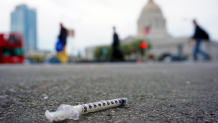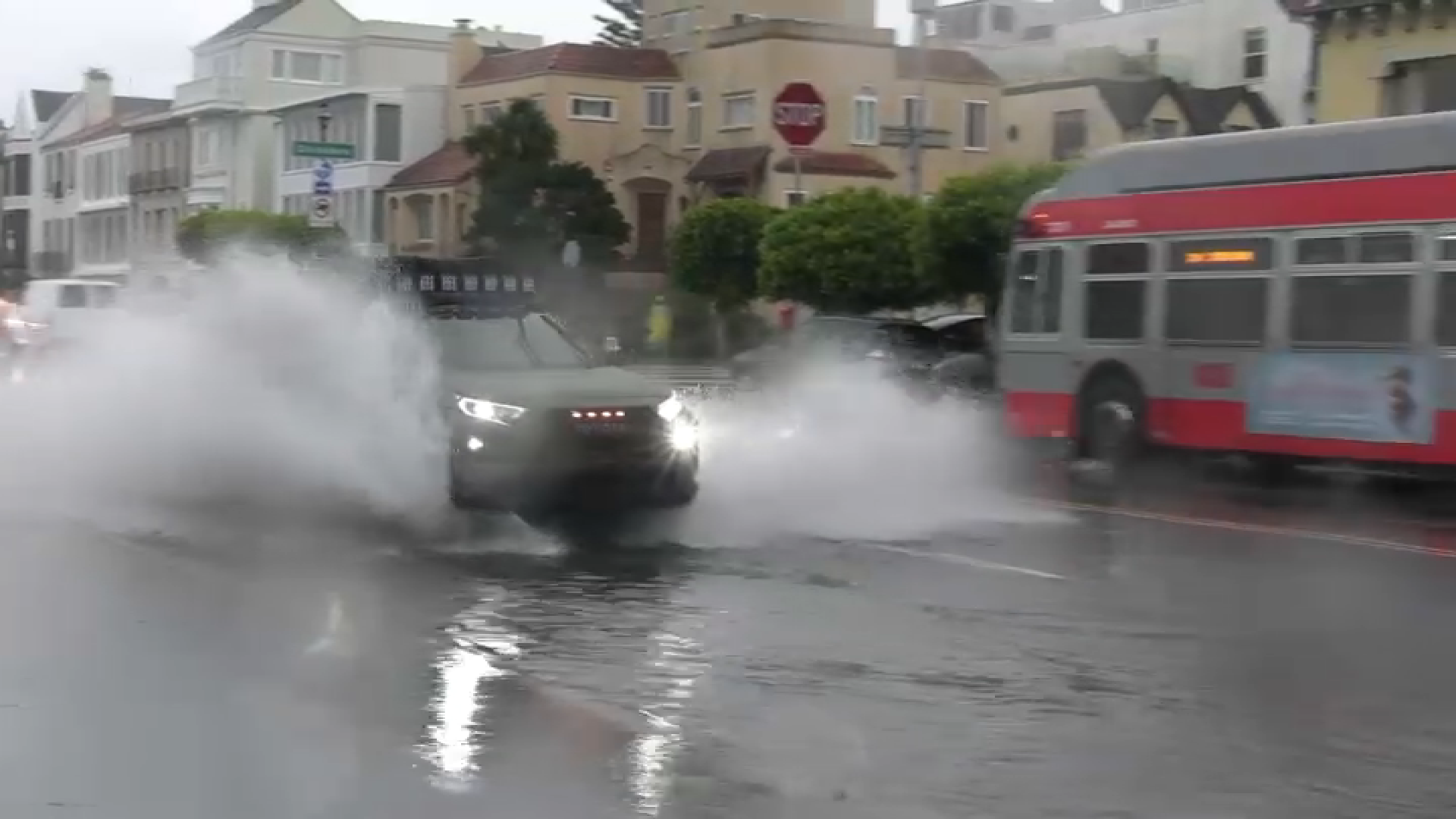In the wake of setbacks and broken promises, San Francisco is once again attempting to open the nation’s first supervised injection site. Legislation was introduced on Tuesday that would create a permitting process, through the San Francisco Department of Public Health, to allow such facilities to operate throughout the city.
Drug overdose deaths are the most deadly epidemic facing our city.
Matt Haney, San Francisco Supervisor
“Drug overdose deaths are the most deadly epidemic facing our city,” said Supervisor Matt Haney, who introduced the legislation. “This is about saving lives. It’s also about getting the open-air drug use off of the streets. Anyone who walks around San Francisco knows that there are far too many people using out in the open.”
The centers allow people to use their own drugs under the watch of staff trained to administer life-saving medication in the case of a potentially deadly overdose. The sites provide drug users with new syringes and a sterilized area to shoot up as well as access to rehabilitation services to overcome their addiction.

There are 24,500 Intravenous Drug Users in San Francisco
Approximately 24,500 people in San Francisco regularly use syringes to inject illegal drugs, according to the city’s health department. In the city, drug overdosing accounted for 259 deaths in 2018 and 182 deaths in just the first six months of 2019.
“What we are proposing is not a radical new idea,” Haney said. “One hundred overdose prevention sites operate in cities around the world. None has ever experienced an overdose death and thousands have gained access to services and therapy.”

Investigative Unit Visits Supervised Injection Sites in Canada
Local
To examine the sites firsthand, the NBC Bay Area Investigative Unit traveled to Canada in 2018 and gained access inside these rarely seen drug facilities, including North America’s first supervised injection site situated on the east side of Vancouver.
“For businesses and for residents who are under siege from this drug crisis, where everywhere you walk you see needles and people shooting up, this is one of the solutions to that,” Haney said. “It’s not the only solution, but it’s a key part of an overall strategy.”
Two years ago, San Francisco’s former Public Health Director Barbara Garcia promised to open at least two supervised injection sites in the city by August 2018, with four additional centers opening over the next year. Those plans went nowhere amid fears the sites could be shut down since agents with the Drug Enforcement Administration argued the centers violated federal law. State lawmakers, hoping to codify the supervised injection sites, also had their efforts thwarted when then-Governor Jerry Brown vetoed legislation in 2018 that would have allowed the centers to open in San Francisco under a pilot program.
"Fundamentally, I don't believe that enabling illegal drug use in government-sponsored injection centers - with no corresponding requirement that the user undergo treatment - will reduce drug addiction," Brown wrote in a statement in October 2018.
Since then, there have been developments on both the state and federal fronts that could bode well for opening supervised injection sites in San Francisco.
California Lawmakers to Vote on Bill Allowing Overdose Prevention Sites
This year, the California Senate is expected to weigh in on Assembly Bill 362 that, once again, aims to pave the way for supervised injection sites. The bill, which passed in the Assembly last year, would protect employees at the sites from criminal sanctions and professional discipline, such as revoking a medical license.
Additionally, just last week, a federal judge ruled a proposed supervised injection site in Philadelphia would not violate federal law, finding that the center ultimately aims to reduce drug use through treatment and services rather than promote it. Despite winning the legal battle against the federal government, Philadelphia put its plans to open a supervised injection site on hold following public backlash over the facility.
While the developments could benefit San Francisco’s efforts to open the nation's first supervised injection site, Haney said Mayor London Breed remains cautious.
“I think the mayor’s office is of the view this won’t happen – this won’t open – until January 2021,” said Haney, who added that Breed prefers opening a center only state lawmakers pass legislation to protect site employees from prosecution and accusations of professional misconduct.
“I am not of the same view,” Haney said. “We should work with the state government to see what type of legal and policy guarantees they can give us that are adequate for us to maybe move forward sooner than that.”
I’d like to see this open as soon as possible. We’ve been talking about this for years.
Matt Haney, San Francisco Supervisor
A spokesperson for the mayor confirmed Breed’s desire to delay moving forward until state lawmakers pass legislation to protect employees at the centers.
The proposed legislation to create the permitting process for supervised injection sites will likely go before the full San Francisco Board of Supervisors for a vote next month. If approved, Haney believes San Francisco could open its first supervised injection center this summer.
“I’d like to see this open as soon as possible,” Haney said. “We’ve been talking about this for years.”



